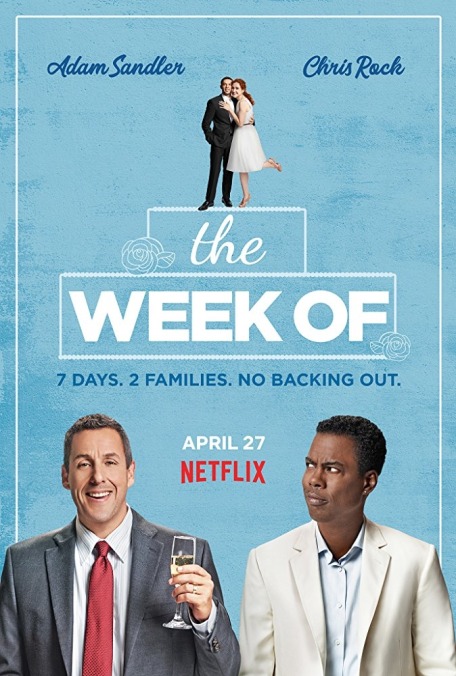Adam Sandler has so many regular and semi-faceless collaborators that it can be virtually impossible to discern their influences and whether they’re positive or negative. Is Tim Herlihy his best screenwriting partner, or just another occasionally funny yes-man who got lucky? Does Dennis Dugan know more about comic staging than Frank Coraci? But Sandler’s longtime buddy Robert Smigel stands out, in part because he only has a few select credits on Happy Madison movies to work with. His satirical-absurdist sensibilities are abundantly visible on You Don’t Mess With The Zohan, where he’s one of three credited screenwriters, and gloriously glimpsed in the “Dunkaccino” scene of Jack And Jill, a bad movie for which he is not a credited screenwriter, but does receive a songwriting credit on the fake Al Pacino-starring Dunkin’ Donuts ad that is one of the movie’s few flashes of demented inspiration.
Rather than sending Sandler on another lush vacation, the movie casts its star as Kenny, a solidly middle-class father of three who insists on paying for the wedding of Sarah (Allison Strong), his eldest daughter. Sarah’s fiancé is Tyler (Roland Buck III), charming son of wealthy surgeon Kirby (Chris Rock). In an obvious contrast with Kenny, Kirby hasn’t always been present for his kids, but is more than able to help out financially, and repeatedly offers to do so (at least in part to keep himself in the luxury to which he has become accustomed). Kenny stubbornly insists that he’ll take care of everything, which for a wedding with 180 guests means cutting corners with a tween DJ, “two-diamond” accommodations at a shabby local hotel, and a roaming magician inexplicably serving as entertainment and master of ceremonies.
That’s about it. Over the course of a week, Kenny and his wife, Debbie (Rachel Dratch), prepare by shuttling family from the airport and making room at their modest home for plenty of guests, all while attempting to impress Kirby and reassuring Sarah that everything will be fine. The mounting difficulties—leaky hotel ceilings, a faulty wheelchair, shifty Uncle Charles (Steve Buscemi) getting a “deal” on liquor at the airport’s duty-free shop—are well-suited to the running gags that Sandler’s comedies have often relied on, typically with the clock-punching mirthlessness of a half-hearted “funny” co-worker. Here, though, Smigel links together a lot of good ones, like Sandler and Dratch screaming at each other from offscreen rooms as the rest of the family nonchalantly goes about their business. It sounds sour on paper, but Smigel (along with Sandler himself, who co-wrote) has an ear for the details of a noisy family out on Long Island (“an hour and 20 from the city, three hours with traffic,” Kenny clarifies) that translates to real affection.
For the first time since Zohan, which rooted its silliness in a real understanding of New York life, a Happy Madison production has moments that might be called sharply observed, especially in dealing with its marginal characters: the childhood best friend who can’t stop mentioning that she’s already seen the bride in her dress; the old biddy who takes time to steal centerpieces during an evacuation; the skeptical grandmother who can be lured back into the fold with a threat of having to eat “white-people potato salad” if she doesn’t attend Kirby’s planned rehearsal dinner. The Week Of also has a very Smigel way of poking at social niceties, like the way Kenny’s elderly Uncle Seymour, who barely served in World War II and lost his legs to diabetes, gets mistaken for a Greatest Generation hero everywhere he goes, receiving rapturous applause from strangers as he nods indifferently.
This bustling comedy is not exactly a buddy story between Sandler and Rock; sticking to its weeklong timeline, the movie doesn’t force too many characters into contrived conflicts or rushed epiphanies. With the dads on separate-but-intersecting story tracks, Rock, still of narrow acting range, gets the slightly short shrift, his belated realization that he needs to be a better dad overshadowed by the usual looming Sandler self-aggrandizement. (“My whole family loves you,” Kirby says to Kenny at one point, because how can there be a Happy Madison movie where everyone doesn’t wind up loving the Sandman?) But at least that works thematically in a movie that’s partially about how easy it is to project issues onto other people’s weddings.
Like all of Sandler’s Netflix movies, The Week Of is longer than it needs to be, finally ending on more of a friendly shrug than an emotional crescendo or a great gag. The difference is that this one’s modesty feels intentional, rather than what happens when Happy Madison has a Netflix slot to fill and a deadline to meet. It still manages to make time for one escalating bit of sabotage that has the single biggest laugh in one of these movies since John Turturro screamed his way through Zohan. Smigel may not want to take up permanent residence in the Happy Madison offices, but he raises his old friend’s game considerably.

